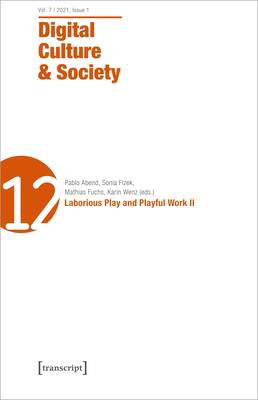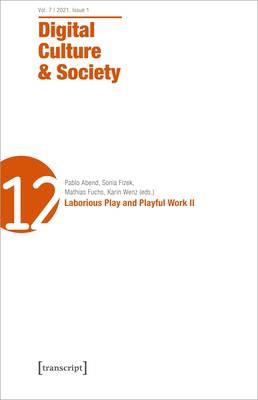
- Afhalen na 1 uur in een winkel met voorraad
- Gratis thuislevering in België vanaf € 30
- Ruim aanbod met 7 miljoen producten
- Afhalen na 1 uur in een winkel met voorraad
- Gratis thuislevering in België vanaf € 30
- Ruim aanbod met 7 miljoen producten
Zoeken
Digital Culture & Society (Dcs)
Vol. 7, Issue 1/2021 - Laborious Play and Playful Work II
Karin Wenz, Mathias Fuchs, Pablo Abend, Sonia Fizek
€ 59,45
+ 118 punten
Uitvoering
Omschrijving
As DIY digital maker culture proliferates globally, research on these practices is also maturing beyond conceptual speculation and propositional dogma. Nevertheless, particular terminologies dominate beyond their Anglo-Saxon contexts, and technocultural histories of digital making are often rendered as over-simplified technomyths and hagiographies of selected gurus. This issue brings together contributions from cultural-historical perspectives, technology and design histories and historiographies, as well as alternative histories related to postcolonial resistance. The papers give voice to hidden antecedents that play a role in maker subcultures and their social imaginaries. Alongside peer-reviewed articles, the special issue will feature an interview with Peter Harper, Centre for Alternative Technology in Wales, by Simon Sadler. The interview sheds light on the "Exhibition of People's Technology" that was displayed at the Moderna Museet during the landmark United Nations Conference on the Human Environment in Stockholm in June 1972. Very little has been published on this compelling exhibition.
Specificaties
Betrokkenen
- Auteur(s):
- Uitgeverij:
Inhoud
- Aantal bladzijden:
- 200
- Taal:
- Engels
- Reeks:
Eigenschappen
- Productcode (EAN):
- 9783837653878
- Verschijningsdatum:
- 3/05/2022
- Uitvoering:
- Paperback
- Formaat:
- Trade paperback (VS)
- Afmetingen:
- 170 mm x 244 mm
- Gewicht:
- 272 g

Alleen bij Standaard Boekhandel
+ 118 punten op je klantenkaart van Standaard Boekhandel
Beoordelingen
We publiceren alleen reviews die voldoen aan de voorwaarden voor reviews. Bekijk onze voorwaarden voor reviews.








